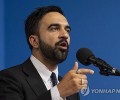| How Different Are Korean Schools From Korean Language Schools? |
| Bostonkorea 2010-11-17, 16:51:00 |
|
HyunChen Kim
Translated by Kelly Choi Korean Government Funding Favors oversea Korean Schools Over Korean Language Schools ; Language Schools’ Funding Only 13% of Funding To Korean Schools Despite the growing importance of Korean Language Schools as a bridge between Korea and second generation Korean Americans, Korean Language Schools are still struggling to normalize operations and are not the government’s first priority. Korean School or Korean Language School? The government defines Korean schools as institutions that combine elements of Korean and local curricula for the children of Koreans living abroad for the short term, as well as for Korean-American children. Korean language schools are defined as institutions that teach Korean to residents, citizens, adoptees, or multinational children. Another distinction is that Korean schools are public schools accredited by the government, while the language schools are privately organized. However, these same schools tend not to see themselves as merely place to learn Korean, a viewpoint the Korean government would do well to consider. “This is a place where Korean students have a real sense of community and find their own identities while also learning Korean. The term “Korean Language School” is not good enough,” In-sook Chang, the principal of North Boston Korean School, said. Lopsided Budget for Korean Schools and Korean Language Schools The Korean government announced that 5.24 million dollars will support 30 Korean Schools abroad. But there are 2,111 Korean Language Schools organized by immigrants supported by 0.68 million dollars, only 13% of the budget for Korean Schools. Regarding the budget’s scale, most people say “It is reasonable to support Korean schools more, because they were instituted by the Korean government.” However, they also remarked that the government should be more concerned about Korean Language schools that government defined as a Korean School Difficult Operations of Korean Language Schools Most Korean Language Schools are not financially stable. They purchase different textbooks because the textbooks supplied by the government are inadequate. Teacher recruitment and retention presents another challenge. Korean School Associations across the world have been struggling to resolve these issues. Some issues has been solved, but still a large number of problems remain according to school staff. Korean School Associations have responded to these problems by forming a World Korean School Association that seeks ways to expand the government’s support for Korean language schools. Schools Operate on a Large Scale, But Rent Remains a Problem For the most part, Korean Language Schools were founded between 20 and 30 years ago by local Korean associations, and have gone through operational difficulties. New England Korean School, the biggest Korean school in New England, started with only a few students. Now the school employs 60 teachers and teaches more than 400 students. Principal Nam Il says the large scale doesn’t mean no difficulties. Because of high enrollment figures, the school is leasing more space and paying more rent. Therefore, tuition is higher than at other schools. “Like Hebrew schools, local Korean language schools could merge to become a school so as to receive American government grants with which to purchase our own building. Having done that, we would be more organized and would provide better education to the second generation students,” claimed Mi-ra Yoon, a director of New England Korean School. In the case of Rhode Island Korean School, one of its founders was a professor at Brown who obtained permission from the University to use its buildings for free 30 years ago, a privilege which the School continues to enjoy. Textbooks for Korean American Students Are Needed According to teachers, the textbooks supplied by National Institute for International Education in Korea are actually designed for Korean students whose first language is Korean. Therefore, Korean language schools have to purchase a different set of textbooks written especially for nonnative learners. An Insoluble Problem, Securing Teacher Supply Recruiting and retaining teachers poses another serious problem for Korean Schools. Since teaching is only a volunteer position, it is not easy to recruit new teachers and retain old ones every semester. Schools in Boston, especially, experience this problem because most of their teachers are college students. New England Korean School has a protocol for preparing assistant teachers to take on the role of main teacher should the main teacher quit. However, this protocol still calls for having many teachers, a difficulty for small schools. Hee-Mong Kim, the principal of Rhode Island Korean School, said recruiting teachers is not hard because the school is within Brown University, but 2 to 3 teachers leave every year. He mentioned the only solution is for immigrant parents who have already raised a child to teach in the school on a volunteer basis. However, Young-ok Shin, the principal of Maine Korean School, said “Getting immigrant parent teachers might be a good solution, but they are not at liberty to work for little money. They usually work, so volunteering places an additional physical and emotional burden on them. If the school financial system were to become more stable, we might be able to pay them more.” She also emphasized that that is why Korean schools need more support from the Korean government. Teachers claim that government support has been better compared to the past. However, they all agreed that that does not solve the problem of schools struggling for 20 to 30 years. Chul-hee Lee, a consular general in Boston, mentioned that Overseas korean Foundation is concerned by the identity issues of second generation Korean-Americans. He added that the organization will expand its support gradually. In-sik Oh, President of New England Korean School Association, said the issues Korean schools currently face cannot be solved quickly, but they will be solved gradually through efforts similar to organizing the World Korean School Association. However, he emphasized that maintaining the teacher corps can only be solved with local support. |
 |
 의견목록 [의견수 : 0]
의견목록 [의견수 : 0]
|
 |
| 등록된 의견이 없습니다. | |
|
|
 프리미엄 광고
프리미엄 광고

161 Harvard Avenue, Suite 4D, Allston, MA 02134
Tel. 617-254-4654 | Fax. 617-254-4210 | Email. [email protected]
Copyright(C) 2006-2018 by BostonKorea.com All Rights Reserved.
Designed and Managed by Loopivot.com






















